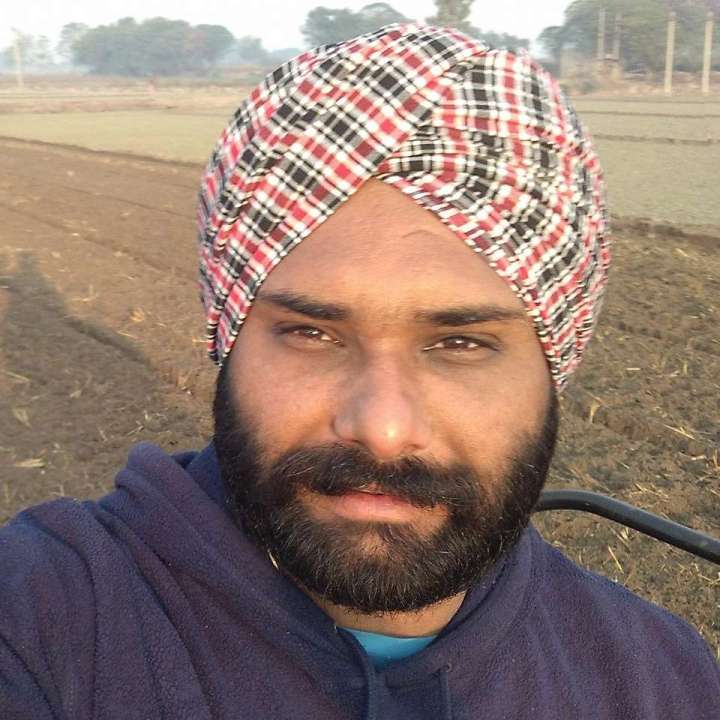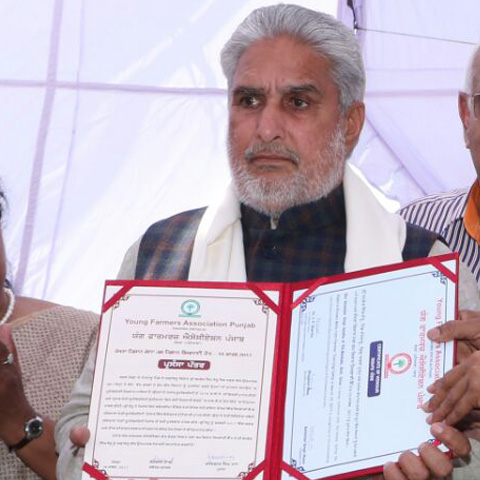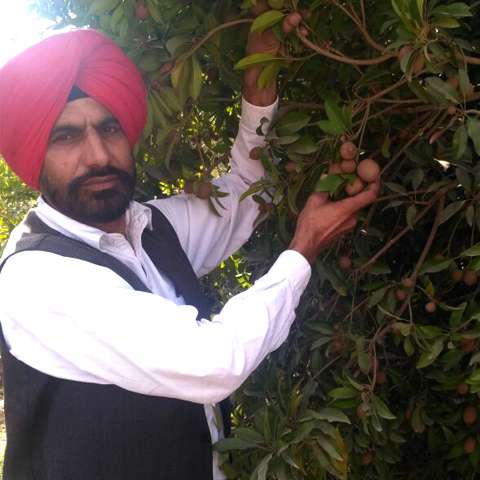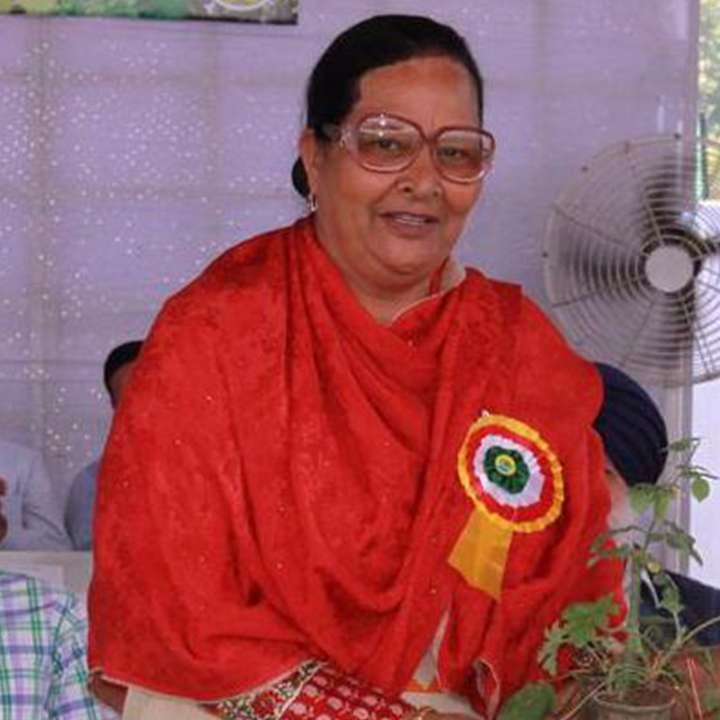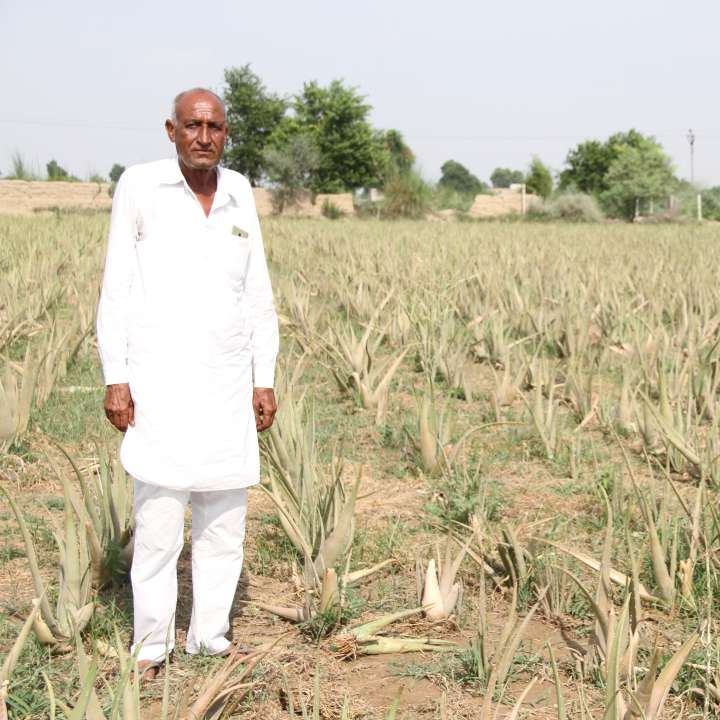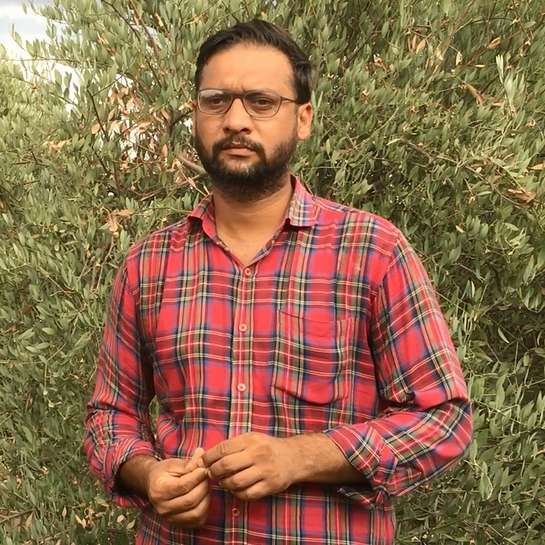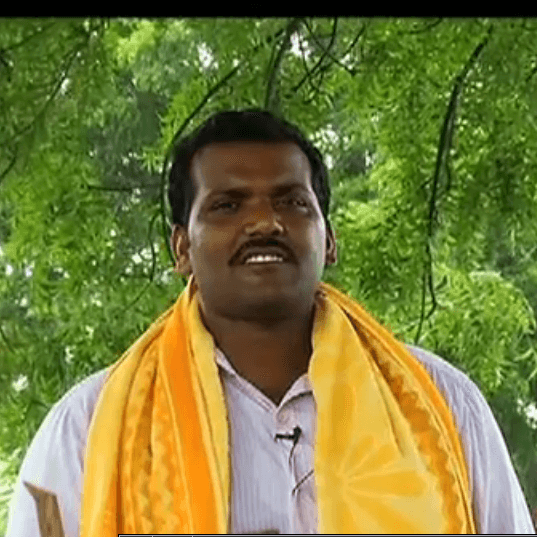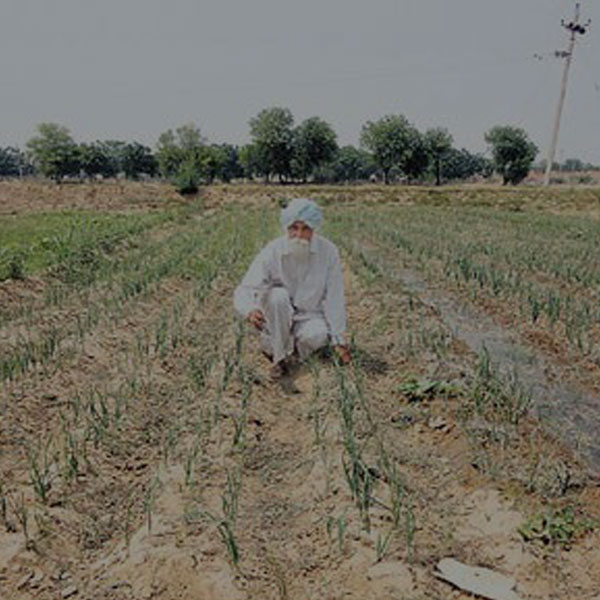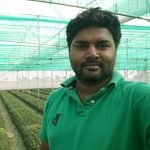HOW A WOMAN PURSUED HER PASSION OF FARMING AFTER HER MARRIAGE AND IS LIVING THROUGH IT SUCCESSFULLY
Generally, in India, when daughters are married away and sent to their husband’s home then they get so busy in their life after marriage that they forget to think about their interest and hobbies, they just get bounded to the household chores. But one such woman who pursued her passion even after marriage and outliving it is Mrs Karamjeet Kaur Danewalia. Instead of just becoming house woman she chose to step outside the house and pursue her hobby of orchard farming.
Mrs Karamjeet Kaur Danewalia is a woman who was born raised in a typical Punjabi farmer’s family of a small village. As coming from a farming background, Mrs Karamjeet was always fascinated towards farming and had an interest in helping his father in the fields. But she never get a chance to be a helping hand to her father before marriage.
Soon she was married to Mr Jasbeer Singh, to a business class family. She never thought that after marriage she would get an opportunity to fulfil her dreams and pursue it as her profession. Just after few years of marriage, in 1975, with the support of her husband, she decided to start with the fruits orchards and give a chance to her interest. With the help of leveller machine and workers, she levelled 45 acres of land and prepared it for orchard farming. She planted kinnows in 20 acres, Plums, pear, peach, java plum, banana, naak pears on 10 acres and in the rest of the 5 acres she planted wheat in winter and cotton in summer.
Her hobby changed into passion and she decided to continue it. In 1990 she build up a pond and stored rain water in it so that, she can irrigate her orchards with it. But later on, she started fish farming in it and used it for both purpose fish farming as well as irrigation. To expand the business to one level ahead she also started preparing seedling herself.
In 2001 she created a record of Kinnow production in India. And to make the kinnow orchards business more successful, she especially went to California in 2003 to take kinnow packaging and processing training. After coming back she implanted that training and gained a huge profit from it. Since she has started kinnow farming from that year her kinnow quality is always no. 1 in district level and state level, every year. And because of her growing popularity in kinnow production, Prakash Singh Badal (Former CM of Punjab) entitled her as the Kinnow Queen in 2004
For the farming purpose, she has every type of modern technological farming equipment and machinery at her farm. Her popularity in the horticulture field has made her member of many prestigious communities and recipient of many awards. Some of them are listed below:
• Awarded First Prize in State Level Citrus Show by Agriculture Minister S. Gulzar Ranika (2001-02)
• Awarded Desh Seva Rattan Award by Ravi Chopra by Shahee Memorial International Seva Society, Ludhiana. (2004)
• Entitled by Punjab’s Former CM- Prakash Singh Badal as Kinnow Queen in 2004
• Best Kinnow Grower Award by Agriculture Minister by S. Jagjit Singh Randhwa in 2005
• Awarded 2nd prize in state level citrus show kinnow crop (2012)
• 1st prize at district level citrus show kinnow crop (2012)
• 2nd prize district level citrus show kinnow crop (2010-11)
• 2nd Prize in state level citrus show kinnow crop (2010-11)
• Best women kinnow grower awarded by agriculture minister- S. Such Singh Langhah (2010)
• State awarded as innovative women farmer at kissan mela by PWD Minister S. Shranjit Singh Dhillon & V.C PAU, Ludhiana (2012)
• Champion Female Farmer Award for excellence in agriculture at 7th National conference on KVK at PAU, Ldh. Presented by Mr. Sharad Pawar Minister of Agriculture, Govt. Of India. (2012)
• Award of Honor in progressive women farmer on 64th Republic Day at Amritsar presented by Chief Minister, Punjab, S. Parkash Singh Badal. (2013)
• Award of appreciation in innovative contribution to Indian agriculture at global agri connect (NSFI) IARI, New Delhi presented by Dr. R.R Hanchinal, Chairperson PPUFRA, Govt. Of India, Ministry of Agriculture. (2013)
• National Awarded as Best Kinnow grower of Punjab at NRCC (National Research Centre of Citrus Nagpur) (2012)
• Bharat Jyoti Award for Meritorious Service, Outstanding Performance & Remarkable role in Agriculture presented by Dr. Bhisham Narain Singh(former governor of Tamilnadu & Assam) (2013)
• Bharat Gaurav Award as in Recognition of contribution and dedication to worthy cause and your achievement in keeping the flag of India high presented by Justice OP Verma former governor of Punjab at New Delhi. (2015)
• Zee Punjab/Haryana/Himachal Agri Award as best farmer horticulture of her outstanding contribution as a horticulturist in adoption & promotion of kinnow farming presented by Agriculture minister S. Tota Singh and Cabinet Minister S. Gulzar Singh Ranika and Mr. Dinesh Sharma editor, Zee Punjab Haryana Himachal.
• Member of PAU Kisan Club,
• Member of Punjab AGRO,
• Member of Punjab Horticulture Department,
• Member of Mandi Board,
• Member of Changi Kheti,
• Member of Kinnow Utpadak Sanstha,
• Member of Co-operative Society,
• Member of Kisan Salahkar Committee.
• Member of PAU, Ludhiana Board of Management
Despite being a recipient of so many awards and appreciation, she is always curious to learn something new and that’s why she never misses any district level agricultural events or meetings. She also regularly visits farms of the farmers who are associated with PAU and Hisar Agriculture University to learn something new from there and gain knowledge.
Today she is harvesting 130 ton of kinnows per hectare and generating revenue of 1 lakh and 65 thousand from it. From the rest of the fruit orchards and wheat and cotton crops, she is making revenue of 1 lakh each in every season.
Behind all her success, she gives credit to his husband who supported her dreams also helped her in farming all these years. Other than farming she is also contributing to a very good cause for the society; she helps in poor girls get marriage by providing financial help and other marriage material also. Her future plan is to make agriculture a more profitable commercial business.
MESSAGE TO FARMERS-
“
Farmers have to start maintaining their expenses properly and stop showing off what they don’t have. Today, agriculture field needs more attention, so young kids even daughters should also be involved and taught about this field. And everyone should remember one thing that every human being in the field of agriculture is a farmer first and then a businessman.
”

